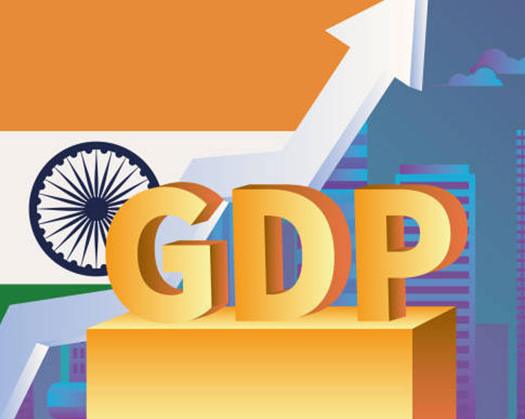New Delhi: The robust foreign exchange reserves and minimal external debt levels of India are significantly enhancing its overall creditworthiness, as highlighted by CareEdge Ratings on Thursday. In light of these factors, the rating agency has bestowed a 'BBB+' sovereign rating upon India.
Furthermore, the BBB+ rating for India is attributed to the country's strong recovery post-pandemic and an increased emphasis on infrastructure development.
CareEdge Ratings also considers the anticipated reduction in the general government debt and the sustained commitment to fiscal consolidation in its outlook.
CareEdge Global notes that India's external debt to GDP ratio has been steadily decreasing since 2020, with notable declines of 21.1 per cent in 2020, 19.9 per cent in 2021, 19.0 per cent in 2022, and 18.7 per cent in 2023.
Through its subsidiary CareEdge Global IFSC Ltd, the rating agency has ventured into the sovereign rating market. On Thursday, it released a report titled 'Sovereign Ratings of Global Economies', where it assigned sovereign ratings to 39 countries, among which India.
CareEdge Ratings attributes India's credit assessment to its large and diverse economic structure, as well as its robust economic growth performance.
However, the report also acknowledges that India faces challenges due to its low per capita income and high dependence on oil imports (85 per cent), which heightens its vulnerability to global oil price fluctuations.
"The economy continues to exhibit a lower level of global competitiveness, and its per capita income remains relatively low," the report states.
Moving forward, the report posits that there exists a pressing requirement to enhance investment in human capital and generate an increased number of employment opportunities in order to fully capitalize on the demographic dividend.
"The government's emphasis on enhancing the economy's competitiveness, augmenting foreign trade, and fostering capital-led growth represents positive developments. Moreover, the demographic dividend offers a significant opportunity to leverage India's potential for growth," it stated.
India stands as a substantial economy, boasting a nominal GDP of USD 3.6 trillion in 2023.
Economic expansion has maintained a robust trajectory, with growth reaching 8.2 percent in the fiscal year 2023-24, and is anticipated to hover around 6.5 to 7 percent over the forthcoming five years.
"The government's sustained attention to infrastructure development and the resolution of logistical constraints is conducive to enhancing the overall growth potential," it noted.
The focus on digitalization by India is also viewed favorably in terms of fostering transformation.
"The government's dedication to digitalization and e-governance initiatives is commendable for enhancing governance and promoting transparency. Moreover, India finds itself at a pivotal moment, given its favorable demographic composition," it remarked. However, it emphasized that the prioritization of skill development and job creation is essential for India to fully realize the advantages of its demographic dividend.












